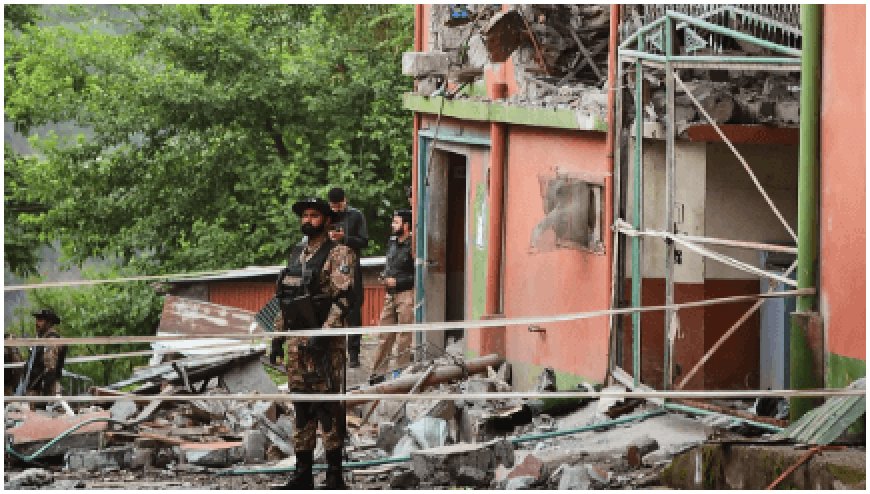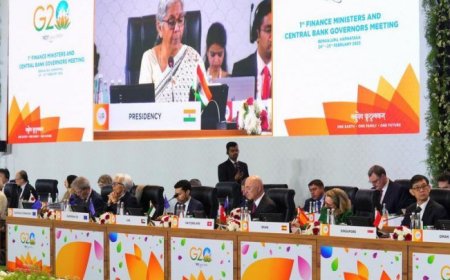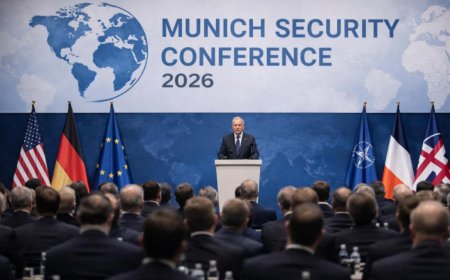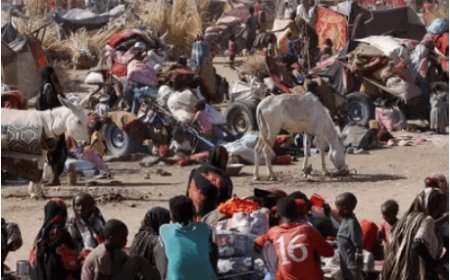Operation Sindoor Strains India-Pakistan Ties: Civilian Deaths and 100s of flights cancelled
Operation Sindoor Strains India-Pakistan Ties: Civilian Deaths and 100s of flights cancelled

Operation Sindoor, launched on May 7, 2025, has significantly escalated tensions between India and Pakistan, leading to civilian casualties and widespread disruptions in air travel across the region.
India and Pakistan’s already tense relationship has plunged into a new low following India’s launch of "Operation Sindoor," a pre-dawn airstrike campaign targeting alleged terror infrastructure across Pakistan and Pakistan-administered Kashmir. The aftermath has been swift and severe—civilian casualties have been reported on both sides, diplomatic channels are under immense strain, and commercial air travel between the two nations and beyond has been thrown into disarray.
The 23-minute operation, which India describes as a counterterrorism measure in retaliation for the April 22 Pahalgam attack that killed 26 civilians, involved Indian Air Force Rafale and Sukhoi jets delivering precision strikes using SCALP and AASM Hammer bombs. Indian officials stated that the targets included militant facilities in Bahawalpur, Muridke, Sialkot, and Muzaffarabad—locations long suspected of harboring elements responsible for cross-border terrorism.
Pakistan, however, has responded with strong condemnation. Officials in Islamabad reported that eight civilians were killed and several others injured as a result of the airstrikes, which they claim hit residential zones. In a televised address, Pakistan's Prime Minister accused India of violating its sovereignty and escalating a volatile situation without provocation. The country has reportedly placed its armed forces on high alert and convened an emergency session of its National Security Committee.
Tensions reached a new high as both nations claimed aerial engagements during and after the operation. Pakistan alleged it shot down five Indian aircraft—including Rafales and Sukhois—though India confirmed only one aircraft loss on either side, identifying it as a Pakistani JF-17 shot down over Pulwama. The fog of war continues to cloud the truth, but the resulting impact is unmistakable: a severe deterioration in diplomatic relations and a precarious military standoff.
The conflict's ripple effects have quickly crossed borders. Hundreds of commercial flights have been cancelled or rerouted due to airspace restrictions over northern India and parts of Pakistan. At least 13 Pakistan-bound flights to and from the UAE were cancelled, leaving hundreds of passengers stranded in airports from Dubai to Islamabad. Indian and international airlines have begun rerouting flights to avoid potential conflict zones, increasing travel times and creating logistical chaos across South Asian air corridors.
Both countries have issued partial NOTAMs (Notices to Airmen) affecting flight routes over conflict-prone regions. The disruptions are not limited to the subcontinent: global carriers with transit routes through South Asia are reassessing flight paths, with some flights to Southeast Asia and the Middle East now avoiding the region entirely. Aviation analysts warn that should the standoff persist, the economic cost could run into tens of millions in delays, reroutes, and cancellations.
Civilian life on the ground has also been dramatically impacted. In Pakistan, the death toll includes children and elderly residents who were asleep when the airstrikes hit nearby structures. In India, while no casualties have been reported due to retaliatory Pakistani actions, several towns near the Line of Control have been placed under emergency protocols, and evacuation drills have begun. Air-raid sirens were tested in key Indian cities like Jammu, Amritsar, and Srinagar, and schools and government offices in border districts were closed as a precaution.
International reaction has been swift but cautious. The United Nations, European Union, and major powers including the United States and China have called for restraint and dialogue. The UN Secretary-General issued a statement urging both nations to “de-escalate tensions immediately and return to the path of diplomacy.” Despite this, neither New Delhi nor Islamabad has signaled a willingness to step back from their respective positions.
In India, Prime Minister Narendra Modi defended the strikes as a legitimate act of self-defense. “India will not allow terrorism to go unanswered. Operation Sindoor is a message to our enemies and a promise to our citizens,” he stated in a televised address. The operation has been widely supported by Indian media and large segments of the public, who view it as a strong and necessary response to ongoing cross-border threats.
Meanwhile, Pakistani officials have framed the operation as an act of aggression and warned that “appropriate retaliation” will follow. Military analysts in the region are already weighing the possibility of Pakistan responding with its own targeted operations, raising fears that both countries could become trapped in a cycle of retaliatory violence.
Behind the scenes, regional powers such as the UAE, Saudi Arabia, and Qatar are reportedly working to broker backchannel communications between the two nations. The UAE, in particular, has a history of quiet diplomacy between India and Pakistan and is seen as a potential mediator capable of preventing further escalation.
Nevertheless, the events of Operation Sindoor represent a clear fracture point. The India-Pakistan relationship—already marred by decades of distrust, border skirmishes, and failed peace initiatives—now faces a critical inflection. With both militaries on high alert, civilians suffering, and international airspace threatened, the window for diplomacy may be narrowing rapidly.
The true cost of this latest flare-up may only become fully clear in the coming days, but the signals are ominous. India and Pakistan are not only facing off militarily—they are spiraling toward a confrontation that could reshape regional security and redefine the boundaries of acceptable state behavior in counterterrorism Operation Sindoor. For now, both governments appear committed to projecting strength, even if it means putting millions of civilians and the region’s fragile peace at further risk.















































